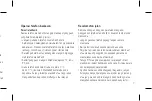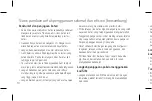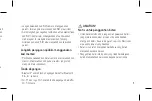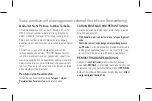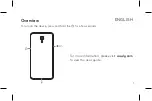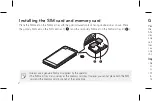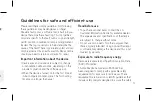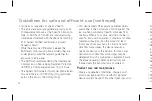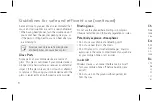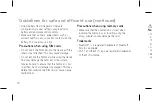
Guidelines for safe and efficient use (continued)
9
Children
Keep the phone in a safe place out of the reach of
small children. It includes small parts which may
cause a choking hazard if detached.
Emergency calls
Emergency calls may not be available on all mobile
networks. Therefore you should never depend solely
on your phone for emergency calls. Check with your
local service provider.
Battery information and care
•
You do not need to completely discharge the
battery before recharging. Unlike other battery
systems, there is no memory effect that could
compromise the battery’s performance.
•
Use only LG batteries and chargers. LG chargers
are designed to maximise the battery life.
•
Do not disassemble or short-circuit the battery.
•
Replace the battery when it no longer provides
acceptable performance. The battery pack may
be recharged hundreds of times before it needs
replacing.
•
Recharge the battery if it has not been used for a
long time to maximise usability.
•
Do not expose the battery charger to direct sunlight
or use it in high humidity, such as in the bathroom.
•
Do not leave the device in hot or cold places, as
this may deteriorate battery performance.
•
Risk of explosion if battery is replaced by an
incorrect type. Dispose of used batteries according
to the instructions.
•
Always unplug the charger from the wall socket
after the phone is fully charged to save unnecessary
power consumption of the charger.
Blasting area
Do not use the phone where blasting is in progress.
Observe restrictions and follow any regulations or rules.
Potentially explosive atmospheres
•
Do not use your phone at a refueling point.
•
Do not use near fuel or chemicals.
•
Do not transport or store flammable gas, liquid or
explosives in the same compartment of your vehicle
as your mobile phone or accessories.
In aircraft
Wireless devices can cause interference in aircraft.
•
Turn your mobile phone off before boarding any
aircraft.
•
Do not use it on the ground without permission
from the crew.

